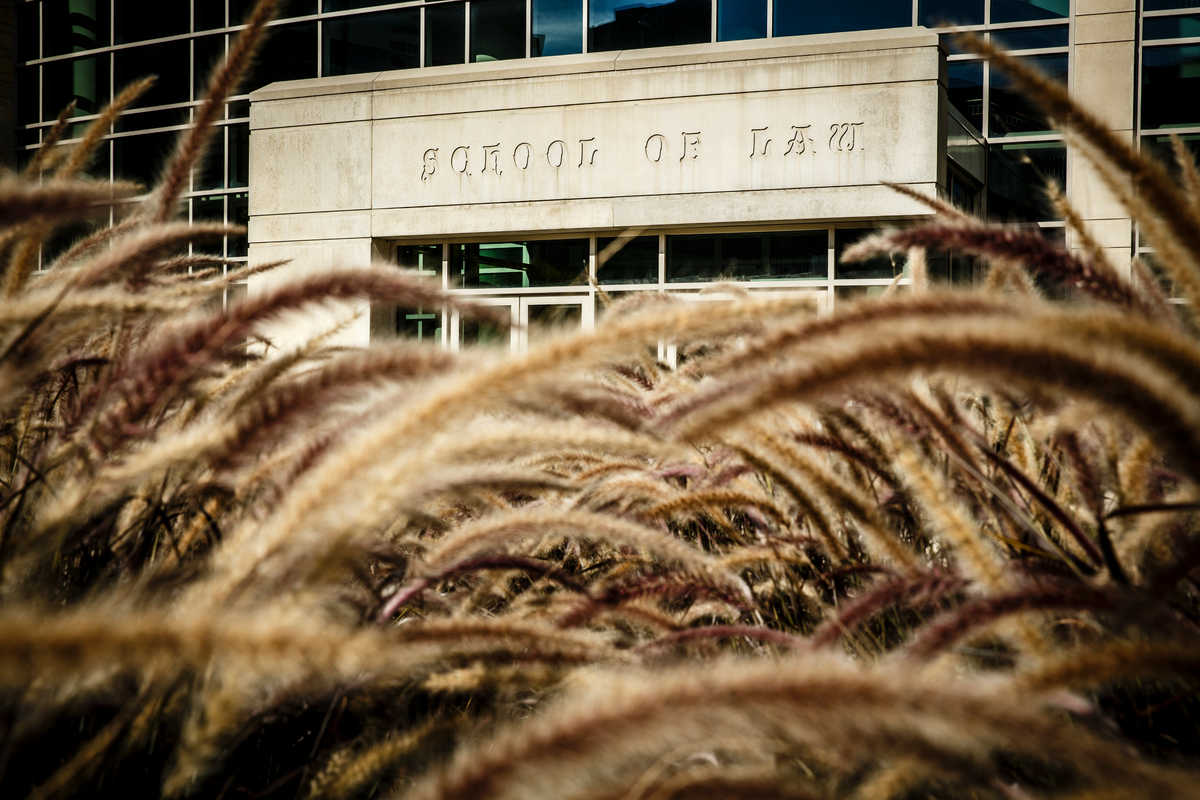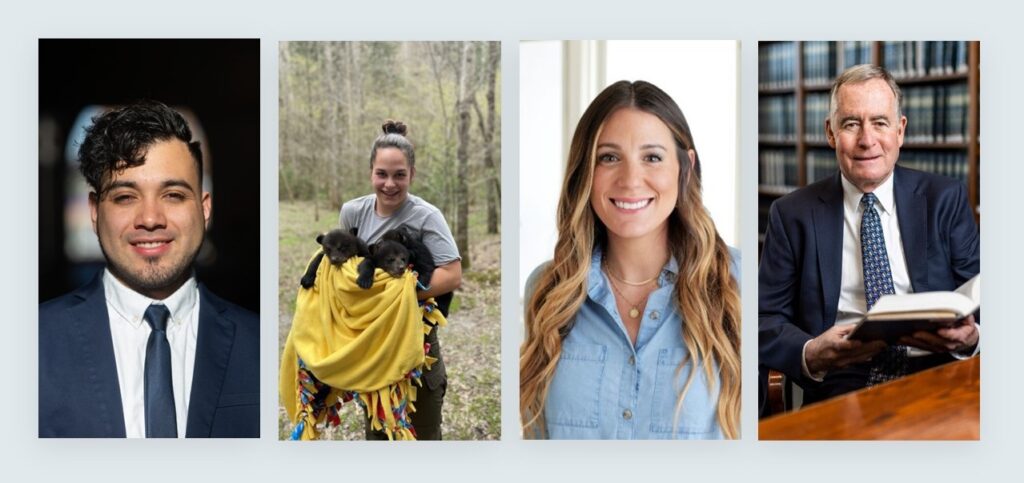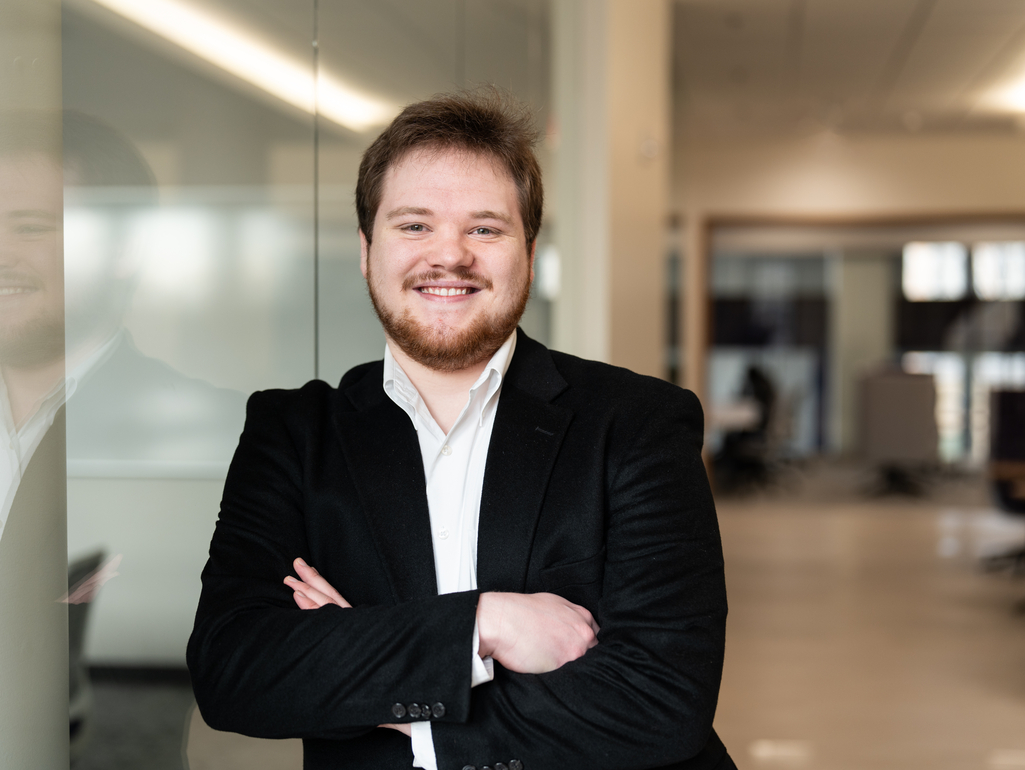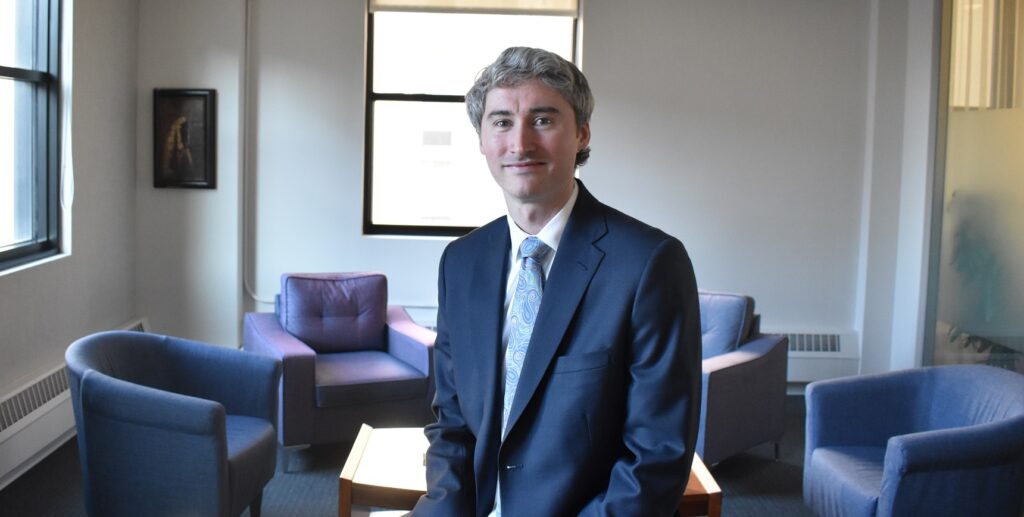A recent visit to the Minnesota Correctional Facility in Stillwater provided students in the law school’s Restorative Justice, Law and Healing course the opportunity to learn about the rehabilitation efforts of a local prison community, and to sit beside convicted men in the Restorative Justice 101 course offered at the facility. Below are reflections about the experience from four law students in the course, which is taught by Father Daniel Griffith.
Annika Johnson, 3L
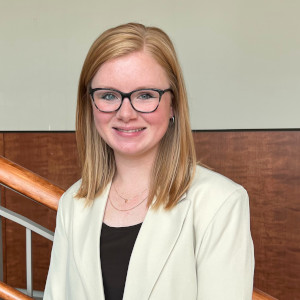
I think this is an experience that every law student should have. This class is led by inmates who have been selected by their peers to be a part of the “council.” These students work with Ashley Nelson, who is one of the on-site psychologists at Stillwater, to put together the curriculum and facilitate each class. Inmates must apply and be selected to participate. There were roughly 15 students in attendance the day I was there; all men, one Native American, one Cambodian, two white, and the rest were Black.
At the end of the class a few of the students shook my hand and said that they hope I come back to visit. They asked me which “side” (prosecution or defense) I want to be on and I told them that I work in a prosecutor’s office right now, but that I’m trying to do that work for the right reasons and to use that position within the criminal prosecution system for good. Like I told them, I don’t think prosecutors should be asking for people to be locked up unless they’ve spent time in the facilities people are sent to and have an appreciation for what they are asking of the court.
Lena Atchan, 2L
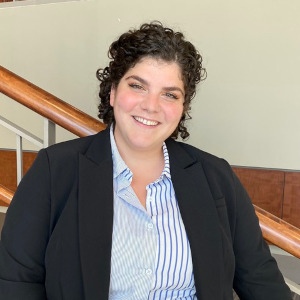
Attending the Restorative Justice 101 class offered to inmates at the Stillwater prison was a deeply rewarding experience and gave me much to reflect on in the weeks that followed the class.
I do not consider myself a judgmental person, but at the prison I met people who, had I known of their criminal records before meeting and speaking with them, I may have approached the conversations with preconceived judgments of them. For example, one inmate whom I spoke with at length during and after the class session had incredibly insightful things to say, yet had I read his case beforehand I certainly would have been far less comfortable speaking with him. My preconceived judgment of him would not be based on any fair determinations – as a human being I am allowed to be comfortable or uncomfortable with whomever or whatever I choose – but my discomfort would be inherently disregarding any self-work that he has done and would not account for how unlikely he is to recommit that type of offense.
In this sense, the experience of attending the class at the Stillwater prison gave me the gift of seeing incarcerated individuals as people first and inmates second. It exemplified for me that people are more than their worst actions, humans are dynamic beings, and everyone deserves the comfort and love that comes from community.
Anne Marie Liberko, 3L
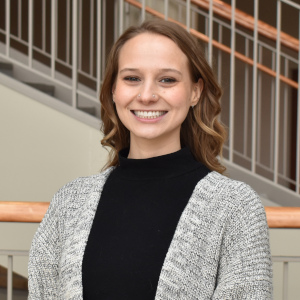
Many of the concepts spoken about in the Restorative Justice, Law and Healing Course at the University of St. Thomas School of Law were also spoken about at the Stillwater prison. The class had their group values listed and up on the whiteboard throughout the course. A few that stuck out to me were “vulnerability” and “respect” in order to promote a space to openly and shamelessly share narratives.
It is empowering to be invited to experience a space where everyone is given attention to share their thoughts while others are encouraged to empathetically listen. It seemed that even just having an opportunity to share their thoughts on the justice system was a healing and empowering experience for these convicted men. I also think the opportunity to speak with future lawyers and to give advice for those entering the justice system was also meaningful. This was one of the most intimate community spaces I have participated in since the start of the pandemic in March 2020.
Katie Olson, 3L
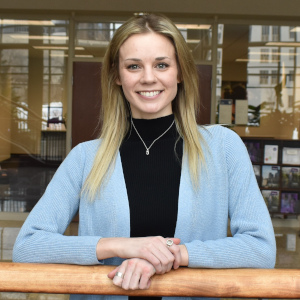
Putting names and faces and stories to individuals experiencing the U.S. prison system and having a firsthand peek behind the curtain gave me a sense of connection to the community and a greater desire to advocate for change in the system. During the experience and even now I am considering somehow working in a restorative justice setting and find myself wanting to advocate for convicted persons. I truly believe that every law student and law enforcement officer should be provided an opportunity to visit a prison at least once before graduating and becoming someone who will later have influence within the judicial system to send people to those places.
I really hope that St. Thomas continues to work with Stillwater to make this experience a class requirement/externship. This was easily my best experience I had in law school. I think as future lawyers, hearing these perspectives and learning alongside the inmates is such a beneficial experience to have.
The School of Law’s Initiative on Restorative Justice and Healing would like to thank Ashley Nelson, clinical program therapist at the Stillwater prison, for facilitating this opportunity for students.
